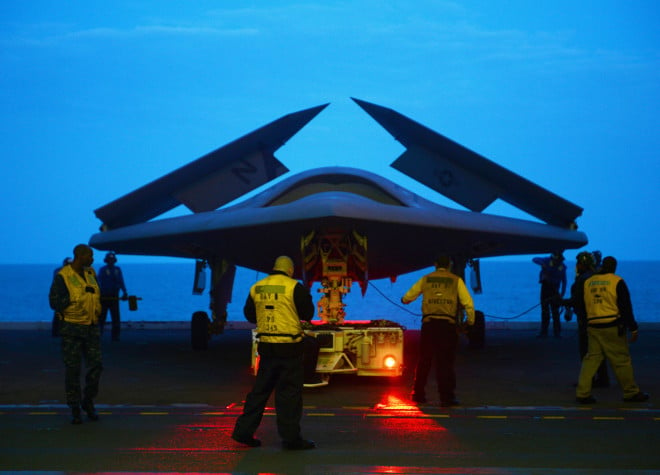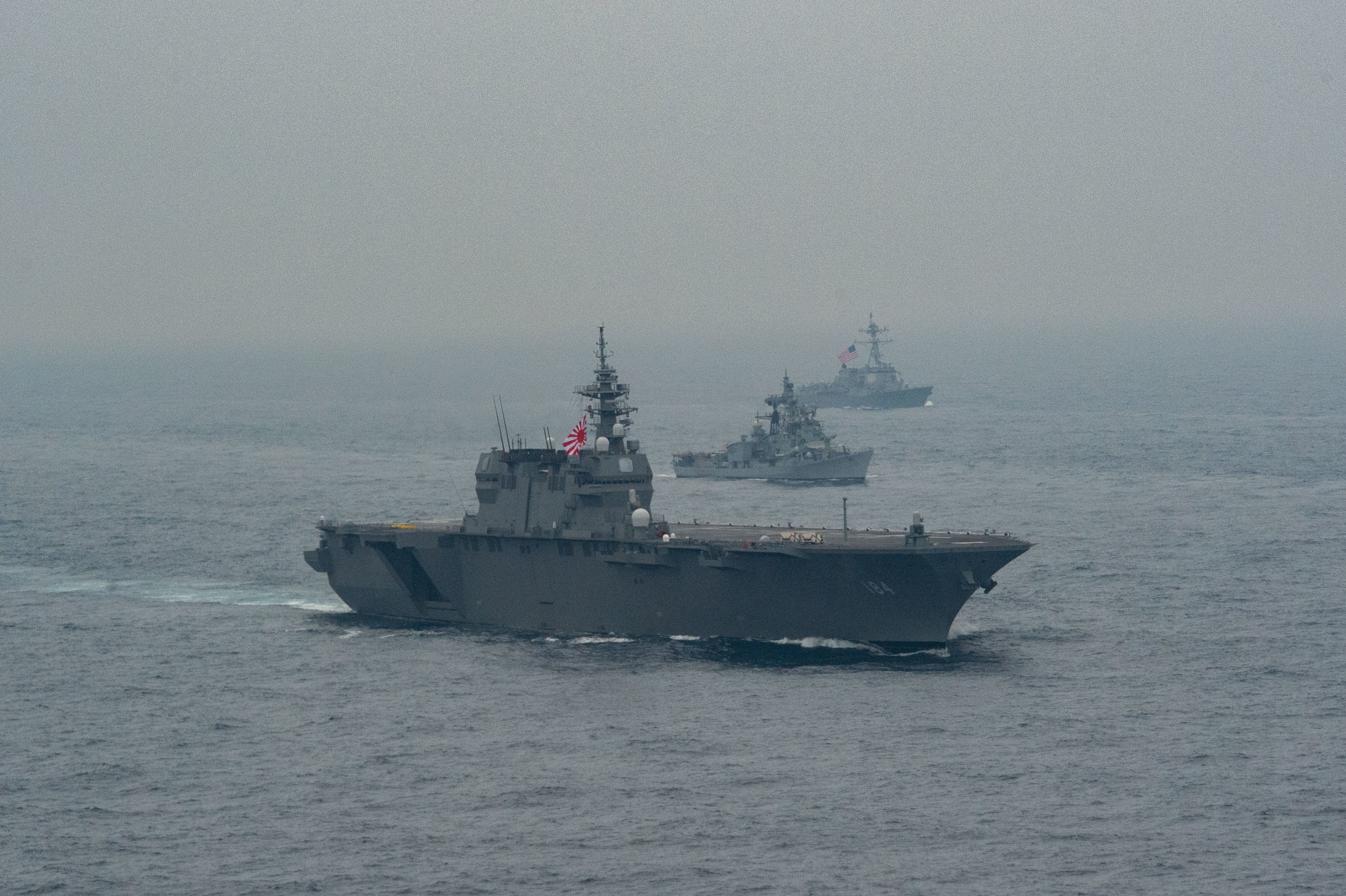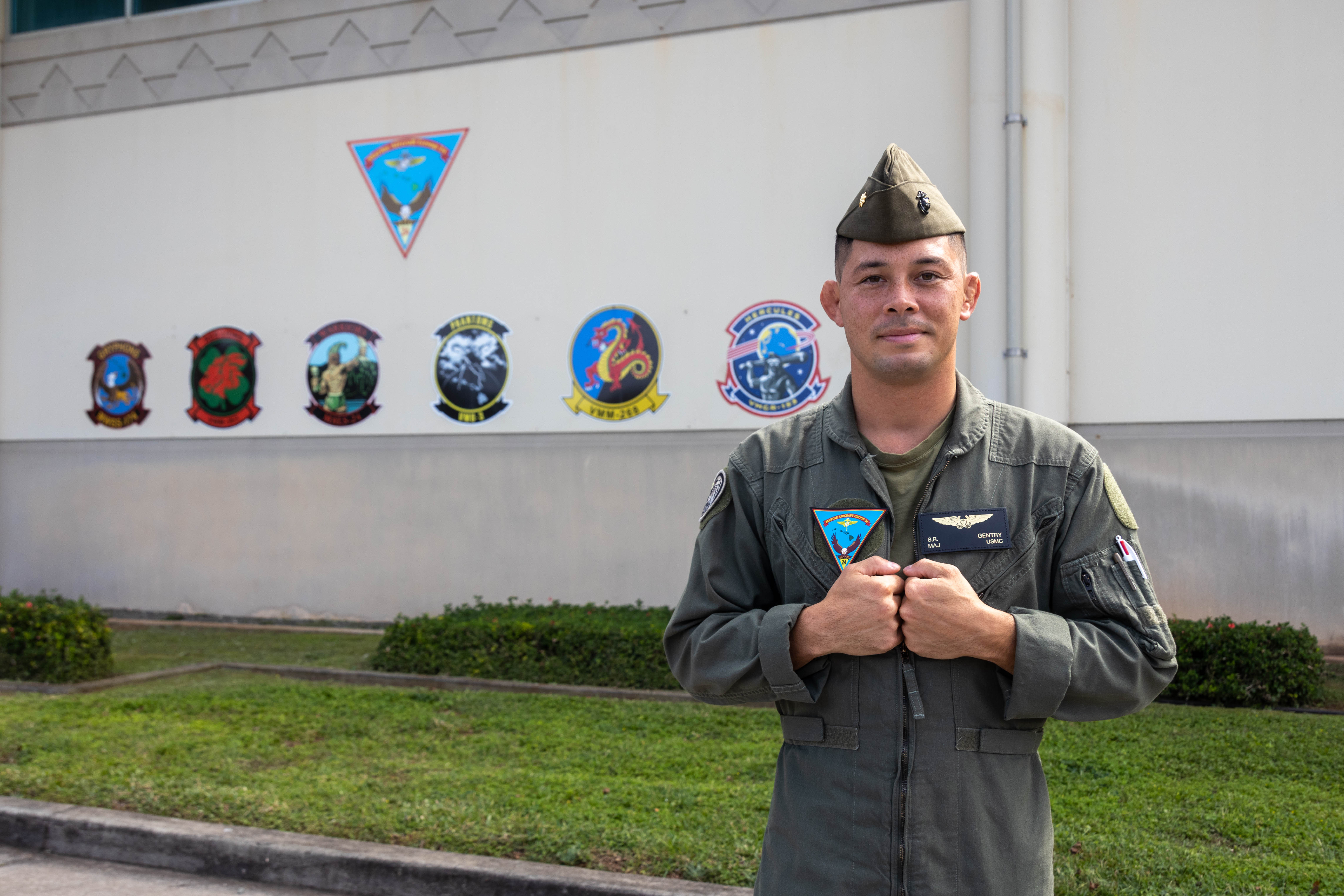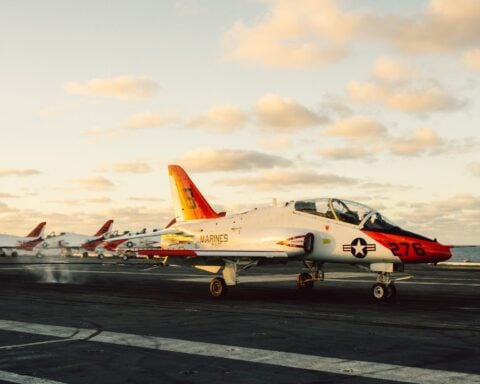
The Fiscal Year 2014 National Defense Authorization Act (NDAA) will not force the U.S. Navy to restructure its Unmanned Carrier Launched Airborne Surveillance and Strike (UCLASS) aircraft program, service officials said.
“Actually our program plan is executable in the context of the FY14 NDAA,” Rear Adm. Mat Winter, Naval Air Systems Command’s (NAVAIR) program executive officer for unmanned aviation told USNI News during a Jan. 29 interview.
NAVAIR will have little difficultly in meeting the Congress’ direction to provide programmatic updates, Winter said. NAVAIR already routinely provides program updates to a number government bodies.
Further, legislators mandated that the Governmental Accountability Office review the UCLASS program annually—which Winter said is not that uncommon. “We have that on other programs,” he said. “We can do that.”
Winter said that from a Congressional perspective, the additional reporting requirements imposed on the UCLASS program are appropriate.
“It provided what you could say are from a congressional optic, logical checks and balances to the department to ensure they understand what our strategy is,” Winter said. “I can understand why they put them in there. They are not draconian or such barriers that it will upset or get us off track of our program plan.”
The FY 2014 NDAA also forbids the Navy from acquiring more than six UCLASS air vehicles prior to receiving a formal Milestone B approval to enter into a engineering and manufacturing development phase or begin low-rate initial production.
Previously, the Navy had hoped to field as many as 24 aircraft—enough for about four carriers air wings — by 2020 before a formal Milestone B approval.
“Technology development phase as part of DOD 5000 has the objective to mature technology and to define and refine CONOPS [Concept of Operations],” Winter said. “And that’s exactly what we’re going to do. So the idea there is we can do that with six or less air vehicles because it’s not the air vehicles as much as it’s the system and we will mature the effort and go to a Milestone B when it’s appropriate.”
There is no need to re-plan the UCLASS program as some industry officials have suggested, Winter said. “The program plan right now, which is no different than the process of a pre-Milestone A for any other, is set. The funding and PB 14 [Presidential Budget Request] has us fully funded.”
Further, the UCLASS and other naval unmanned systems have strong support from the Chief of Naval Operations (CNO) Adm. Jon Greenert and Secretary of the Navy (SECNAV) Ray Mabus. “It is supported by all the appropriate folks and the plan is logical,” Winter said. “What we have to do is we have to get to a more, I’ll say convergence of stability of the design and the system make up. That means we need to get the draft RFP [request for proposals] out, we need to get through source selection and we need get to contract award so we can start doing the integration and execution.”
The draft RFP is in the process of being finalized over the next two weeks, Winter said. “We will go back and brief the Assistant Secretary of the Navy, Mr. [Sean] Stackley, in the middle of February timeframe and we will get the Senior Leadership review of that to make sure that we’ve gotten it right,” Winter said. “When we get it right, we will have a two-week time period before we believe we’ll be able to release the draft RFP. I am not going to give you a date because I can’t give you a date.”





